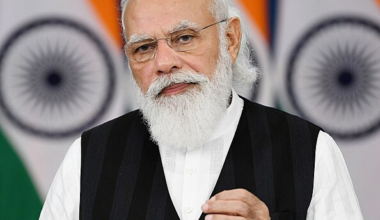
In an Afghanistan once again ruled by the Taliban, there exist public executions, floggings, and lashings of alleged criminals. A recent edict has also signalled the resumption of stoning for adultery. The Taliban’s leader, Hibatullah Akhundzada, declared:
‘You may call it a violation of women’s rights when we publicly stone or flog them for committing adultery because they conflict with your democratic principles… [But] I represent Allah, and you represent Satan.’
It was clear from the start that the Taliban intended to create an Islamic theocracy. Recent developments along that road were inevitable—and also inevitably, Afghanistan’s 14 million women and girls are the ones who have suffered the most for this.
In December 2022, over a year after the Taliban’s re-ascension to power, they brought in a ban on women working in national and international NGOs. In April 2023, women were also banned from working with UN agencies. As Philip Loft of the House of Commons Library noted, ‘For 70% of these women, this was also their family’s main source of income.’ All the while, both the US and the UN continue to provide humanitarian aid to the country. As ProPublica has reported, ‘The U.S. remains the largest donor of aid to Afghanistan, providing a total of about $2.6 billion since the collapse of the previous Afghan government.’ There are credible fears that at least some of this money is being diverted to the Taliban. As US Representative Michael McCaul, who chairs the House Foreign Affairs Committee, stated, ‘The U.S. government must work harder to prevent the Taliban from benefiting from humanitarian aid.’
The Taliban’s curtailment of women’s freedom has meant the deprivation of incomes for thousands of families and a reliance on foreign aid. However, this is not the Taliban’s only source of income. Dr Nooralhaq Nasimi MBE, the founder of the European Campaign for Human Rights for the People of Afghanistan, said to me that ‘the Taliban makes a lot of its money from opium production and lithium mining’, the latter of which involves Chinese investment. Although an uncertain industry in Afghanistan, lithium mining is potentially very lucrative, with Foreign Policy reporting in April 2023 that China had signed a deal worth ‘$10 billion for access to lithium deposits’.
The tragedy of the Taliban takeover in August 2021 is hard to overstate. Samira Hamidi, an Afghan women’s rights activist, told me that ‘the catastrophe in the country is getting worse’, and that ‘in the twenty years in between the Taliban’s time in power, most women and girls were trying to work, educate themselves, and build better lives.’ That freedom was denied to them for so long pre-2001, granted for a brief period, and then snatched away again is an open wound, felt within Afghanistan and in the diaspora. This state of affairs is hardly accidental or limited to education. Hamidi also told me that in governmental offices there are ‘signs telling women they are not allowed to enter.’ The systematic exclusion of women and girls from public life is an intentional move away from the ‘democratic principles’ Akhundzada so scornfully mentioned.
Despite this, a small light flickers, and there have been some brave acts of resistance. Hamidi said to me that ‘there were mass protests at the beginning, consisting mainly of women and girls.’ Although the protests have tapered off, ‘there are individual actions from brave individuals including human rights activists, women, and journalists.’ For instance, Ismail Mashal, a journalism professor who ran a private university, ripped up his academic records on live TV, handed out books in public, and refused to discriminate between his female and male students. For his courage and solidarity with the women of Afghanistan, he was met with violence and imprisonment.
Those with the most to lose, women, have made the greatest sacrifices to retain their freedoms, while the lack of solidarity from the other half of the population is one reason for their failure.
Mashal’s stand was particularly notable given the pre-eminence of women in the protests against the Taliban. As a Human Rights Watch report noted in February 2023:
‘Mashal’s sense of justice, solidarity, and dissent provided a ray of hope in a country where peaceful protests are often solely championed by women. Since the Taliban took over Afghanistan in August 2021, public protests involving Afghan men standing up for women’s rights have been rare.’
This fact is another aspect of the tragedy: those with the most to lose, women, have made the greatest sacrifices to retain their freedoms, while the lack of solidarity from the other half of the population is one reason for their failure.
The Window of Hope women’s movement, an organisation fighting gender apartheid, recently released a statement:
‘We Afghan women have always raised our voice against the violation of human rights and the systematic suppression and elimination of women since the Taliban took over. Our voice should have been heard. But today, unfortunately, by ignoring the wishes of women and the people of Afghanistan, the process of systematic exclusion of women, arbitrary arrests, torture of prisoners, extra-legal gang rape trials of prisoners, suppression of ethnic and religious minorities has become a normal thing.’
That last fact is one too often forgotten. Despite claiming the status of an Islamic state, which should in theory not discriminate between different peoples, the Taliban is a deeply racist and sectarian organisation. Primarily populated by Pashtuns, they consider only themselves as ‘proper’ Afghans. Dr Nasimi told me that ‘the Taliban, when they entered Kabul, shot many members of the Tajik and Hazara ethnic groups.’
This is old behaviour recreated in new circumstances. A Human Rights Watch report from November 1998 chronicled the massacre of thousands of Hazara men and boys in the northwestern city of Mazar-i Sharif. This is further supported by a September 2020 written submission from the Hazara Research Collective to the International Relations and Defence Committee within the UK Parliament: ‘Over 8,000 Hazaras were systematically killed by the Taliban in the Mazar-i Sharif massacre of 1998.’
Ethnic and religious hatred is a sign of a disordered and diseased ideology, and this thread of violence connects the Taliban of the 1990s to the Taliban of today. A former government advisor who worked in the government overthrown by the Taliban in 2021 told me that ‘people in Afghanistan are not mentally well, they do not have any position in the country’s social and political life, they are not free to express themselves and all people think of is how to escape the country.’ There is undoubtedly truth in what he says. But, as the words and deeds of Afghanistan’s brave women show, a small light still exists, and one day, it shall burn much more brightly.
Related reading
‘The best way to combat bad speech is with good speech’ – interview with Maryam Namazie, by Emma Park
Religion and the decline of freethought in South Asia, by Kunwar Khuldune Shahid
The ‘Women’s Revolution’: from two activists in Iran, by Rastine Mortad and Sadaf Sepiddasht
The hijab is the wrong symbol to represent women, by Khadija Khan
South Asia’s silenced feminists, by Kunwar Khuldune Shahid
Secularism is a feminist issue, by Megan Manson
A new pact for atheism in the 21st century, by Leo Igwe
The need for a new Enlightenment, by Christopher Hitchens








Your email address will not be published. Comments are subject to our Community Guidelines. Required fields are marked *
Donate